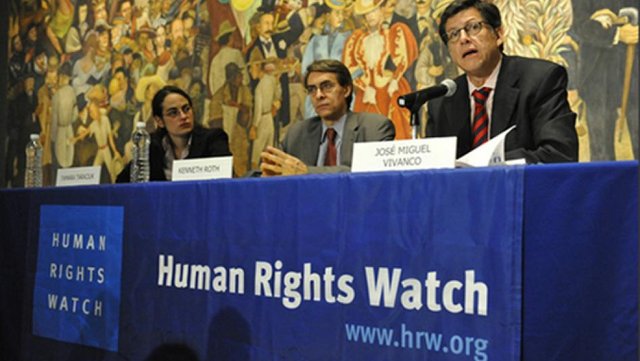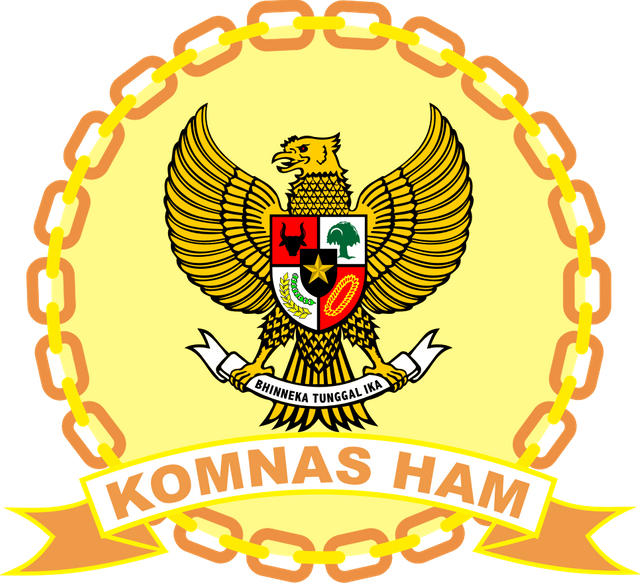the function of the national human rights commission

The urgent demands of society and political liberalization after the fall of Soeharto in addition to impacting constitutional changes and legal instruments have also had an effect on the establishment of human rights institutions at the national level. Related to this, Jimly Assiddiqiy said that the development of society both economically, politically, socially and culturally as well as the influence of globalism and localism require the structure of state organization more responsive to their demands as well as more effective and efficient in performing public services and achieve government goals.
The existence of state institutions can not be separated from the constitutional mandate which after the amendment in the reform era also seriously provides protection against human rights.
Mahfud M.D said, in principle there are two important contents of the constitution, namely the limitation of state power and protection of human rights. The Constitution provides arrangements and determines the functions of state institutions in order to avoid violations of human rights. At least to this day, no system is believed to be better than democracy, especially in terms of how to place or position the people in the context of a state. Democracy positions people clearly in such an important place that at the last level of the people is the most decisive.
The protection and fulfillment of human rights became very important after the fall of the New Order regime. Constitutions and national human rights instruments are established and contain the protection and fulfillment of human rights whose oversight is organized by independent institutions so as to realize the protection, respect and fulfillment of human rights by the state. Therefore, we as the public must know and understand the institutions that protect human rights in Indonesia as well as in the world in general. However, I will share the article about the existing human rights protection institutions in Indonesia.
In the effort to protect and uphold human rights, an official institution has been established by the government such as Komnas HAM, National Commission on Violence Against Women, Human Rights Court and institutions formed by the community especially in the form of pro-democracy and human rights NGOs. The description of each as follows:
- Komnas HAM
Komnas HAM is a body assigned to protect and promote human rights. At the international level, the agency is a working partner of the UN Human Rights Commission at the national level. Read (Knut D. Asplund, Suparman Marzuki and Eko Riyadi (Ed), Human Rights Law, PUSHAM UII, Yogyakarta, 2008, pp. 283)

The National Commission (Komnas HAM) was initially established by Presidential Decree No. 50 of 1993. The establishment of this commission is an answer to the demands of society and international pressure on the need for human rights enforcement in Indonesia. Then, with the issuance of Law No. 39 of 1999 on Human Rights, which regulates Komnas HAM (Chapter VIII, article 75 s / d.99), Komnas HAM which is formed by the Presidential Decree must conform with the Law of the Republic of Indonesia Number 39 of 1999 And Komnas HAM also aims to:
a) assist in the development of conditions conducive to the exercise of human rights.
b) enhance the protection and enforcement of human rights for the development of a fully Indonesian human being living and the ability to participate in various areas of life.
To implement these objectives, Komnas HAM must perform the following functions:
Research and research functions. To carry out this function, Komnas HAM has the authority to:
a. conduct assessment and research of various international instruments with the aim of providing suggestions on the possibility of accession and or ratification.
b. undertake the review and research of various laws and regulations to provide recommendations on the establishment, amendment and revocation of human rights related legislation.Extension function.
In the context of implementing this function, Komnas HAM is authorized to:
a. disseminating insights about human rights to the people of Indonesia.
b. raising public awareness about human rights through formal and non-formal education institutions and various other groups.
c. cooperation with other organizations, institutions or other parties at national, regional, and international levels in the field of human rights.Monitoring function.
This function includes the following:
a. observing the implementation of human rights and the compilation of reports of observations.
b. investigation and examination of events that arise in a society where human rights violations are suspected.summoning to the complainant or the victim or the complained party to be asked for or heard his / her statement.
a. summoning witnesses to be asked for and heard of their testimonies, and to the complainant's witness being required to submit the necessary evidence.
b. review at the scene and other places deemed necessary.
c. calling on the parties concerned to provide written information or to submit the necessary documents in accordance with the original with the approval of the Chief Justice.
d. local examination of houses, yards, buildings and other places occupied or owned by certain parties with the approval of the Chief Justice.
e. giving opinion based on the approval of the Chief Justice of a particular case that is in the judicial process, where in the case there is a violation of human rights in public matters and a hearing by a court which later Komnas HAM opinion shall be notified by the judge to the parties.Mediation function.
In carrying out the mediation function of Komnas HAM is authorized to:
a. peace of both parties.
b. settlement of cases through consultation, negotiation, conciliation and expert judgment.
c. giving advice to the parties to resolve disputes through the courts.
d. submitting a recommendation on a case of human rights violation to the Government for follow-up to its resolution.
e. submitting recommendation on a case of human rights violation to DPR RI for follow up.
For every person and or group having strong grounds that their human rights have been violated, they may file reports and oral or written complaints on the National Human Rights Commission (Komnas HAM). A complaint will only be served if it is accompanied by the correct identity of the complainant and a clear explanation or clear evidence of the complained matter
Go here https://steemit.com/@a-a-a to get your post resteemed to over 72,000 followers.
Plisst help me bro